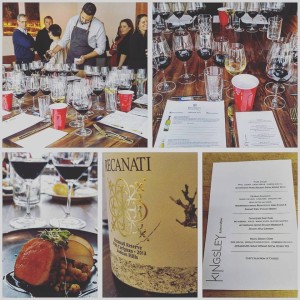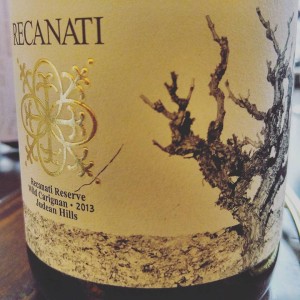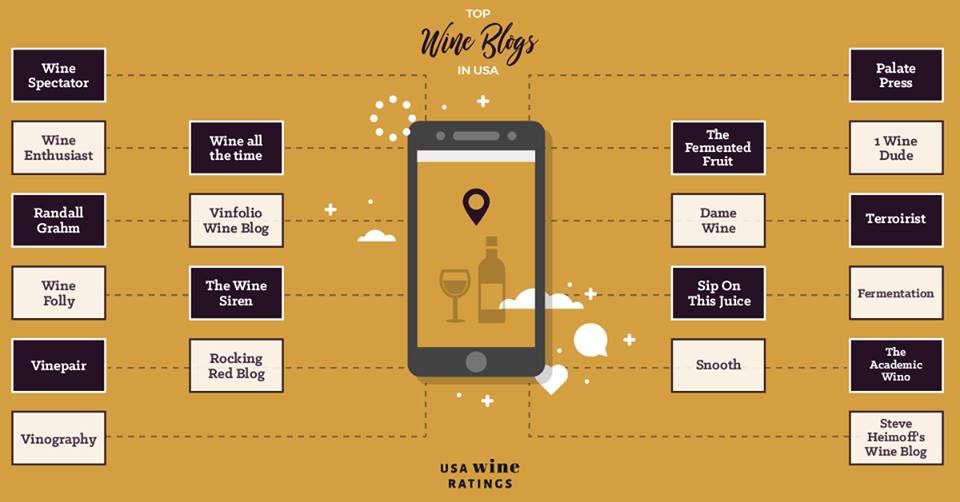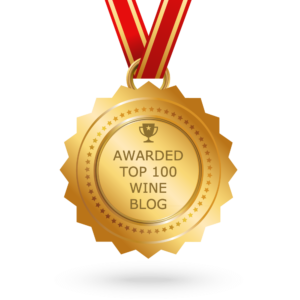 I could certainly be accused of placing a title that is click bait. Actually, I’m not happy with most of my titles. They typically express a question or idea that I am pondering, and not so much what would get a lot of views. I’m trying to find the balance between what titles will actually get people to read my posts while keeping them authentic to the thoughts in my posts.
I could certainly be accused of placing a title that is click bait. Actually, I’m not happy with most of my titles. They typically express a question or idea that I am pondering, and not so much what would get a lot of views. I’m trying to find the balance between what titles will actually get people to read my posts while keeping them authentic to the thoughts in my posts.
This title is both authentic and intriguing. The intriguing part is obvious; there are many reasons why it is authentic to this post, but some less obvious. That an Israeli wine is being made from Palestinian grapes was the main reason I was excited to go to a lunch a couple of weeks ago, to meet an Israeli wine producer.
The producer is Recanati, one of the better known (in New York City) Israeli producers. They make a wide range of wines, and even their mid-level wines, such as their Diamond Series Cabernet Sauvignon, have received praise from wine critics. But also, I realize that they may not be as well known in other areas of the world. New York City has the largest population of Jewish people outside of Israel and so, many Jews and non-Jews would have tried Israeli wines at a Passover seder (a festive Jewish holiday dinner involving drinking kosher wine), and since Recanati has made a name for themselves, they have graced many a Passover table.
But I will go into a small rant later in this post, and I promise it will be small, about people only drinking Israeli wines for Jewish holidays.
So I went to a lunch at the trendy, East Village restaurant Kingsley, to meet head winemaker Gil Shatsberg, and owner Lenny Recanati of the Recanati Winery.
They talked us through a tasting of some of their wines (tasting notes after post), as well as talked about their project with a wine grower in Palestine. But they quickly discussed the wine made from Palestinian grapes since many were eager to discuss it. Shatsberg said they set up a date for harvest with the grower in Palestine, they visit to take samples and then transport the grapes to the Recanati winery. I asked him if it was dangerous….
“It is so simple you can’t believe it.” – Gil Shatsberg, head winemaker at Recanati Winery
Shatsberg and Recanati both said that what we see on TV is only a small percentage of what happens in Israel. Many Israeli and Palestinian people want to do business with each other, and this project is a great symbol of making those desires and dreams happen. And so, the Israeli wine from Palestinian grapes was not the story I thought it would be; I thought it was going to be a tale of dodging bullets in the name of making wine, but it ended up to be a different story, a better story. This is a story about good people working with each other regardless of their nationality or the current state of politics.
Perception Compared to Reality
The US news and TV, as well as my beloved internet, can warp our view of a certain place. The extremists are the ones who get the most media coverage. Being an American, and specifically a New Yorker, I sometimes encounter some crazy stereotypes myself simply because of what the international media projects to the world. It doesn’t happen all the time, but when someone basically sums up the type of person you are simply from where you live, it does seem like an impossible prejudice to overcome.
Israeli wineries are unfairly associated with war, when in reality, most countries have been in a war at one time or another, and war is, by its nature, chaotic. I do not know of any country or people who have been able to handle war perfectly. And this story of an Israeli producer and Palestinian grower easily working together in harmony will never go viral, it will never make the news, even though it represents an attitude that many have on both sides.
Not Just Israeli Wine but an International Wine
Lenny Recanati talked about his ancestry in Italy – he said there is even a town called Recanati in Marche, Italy. His family was not the only Jewish Italian family who made wine, as he said that there had been Jews making wine in Italy since the 15th century, but during World World II, the documents of these producers were destroyed. And so, winemaking is in the Jewish DNA. Also, Israel is a very diverse country, many may share the cultural and/or religious commonality of being Jewish, but since they come from various countries that range from Europe to Ethiopia, they have a melting pot in their major city of Tel Aviv that can only be rivaled by New York City.
 The Recanati Winery represents that diversity with their staff: head winemaker Gil Shatsberg was trained at UC Davis in California, and his co-worker Ido Lewinsohn was trained at the University of Milan. Their diversity extends out to the relationships they have with their growers, of course the grower in Palestine being one great example, another being the old vine Carignan grapes they buy from an Arab Christian – yet another simple story of harmony within Israel that will not make the papers.
The Recanati Winery represents that diversity with their staff: head winemaker Gil Shatsberg was trained at UC Davis in California, and his co-worker Ido Lewinsohn was trained at the University of Milan. Their diversity extends out to the relationships they have with their growers, of course the grower in Palestine being one great example, another being the old vine Carignan grapes they buy from an Arab Christian – yet another simple story of harmony within Israel that will not make the papers.
Archaeologists have uncovered a 3,700-year-old wine cellar in the Canaanite palace in Israel, which reveals that area has been involved in making wine for many thousands of years. Israeli producers believe that some indigenous varieties, as well as some Rhône varieties, are ideal for their Mediterranean climate and terroir.
And here’s my brief rant about Israeli wines being seen as wines to only drink for Jewish holidays or events. This is probably one of the biggest pet peeves I have about New York City as a drinking culture. Yes, we have the second largest population of Jews, and hence we have many wines from Israel here, but there is still the issue that they are not seen as quality wines. This could stem from a hard core reality that Israel had a primitive wine industry a few decades ago, and so, many New Yorkers associate Israeli wines with being incapable of excellent quality.
But recently, Israel has seen major investment of money and energy into their wineries. Recanati was started in 2000 by Lenny Recanati, who is not only a passionate wine lover, but a man wanting to reconnect with his forefathers’ love for making wine. Even the famous Rothschild family has invested heavily in Israel’s wine industry.
And what about the kosher issue?
Being kosher and/or kosher for Passover does not affect quality. Even though there have been many discussions whether top Israeli wineries should be kosher or not, some say just the idea of them being kosher hurts the quality perception of their wines, but they want religious Jews to be able to enjoy the best wines that Israeli can offer, especially if it does not affect quality and keep others from enjoying it. It comes down to educating the public that they offer a range of quality and can reach great premium heights. Also, enlightening the world that Israel can work in peace with their neighbors in a mutually beneficial relationship.
A Wine that Represents Hope
The Recanati wine that is made from Palestinian grapes is a white variety called Marawi. The grower’s name is kept anonymous since there could be backlash against the Palestine growing grapes for the purpose of making wine and/or working with Israelis. Marawi is thought to be a variety that has been around for thousands of years. It has survived being completely ripped out and eradicated, during times when winemaking grapes were destroyed, because it is a tasty grape to eat as well.
It is a beautiful representation of those who survive against all odds, and the hope that not only can all of us live in peace with each other, but we can thrive from the diversity of our world.
**************************************************
Recanati Wines Tasted on January 26th, 2016
-2014 Marawi:
We did not get a chance to taste this wine. There are only 2500 bottles made and so it will be allocated to only a few accounts in major cities such as New York City.
-2014 Sauvignon Blanc:
It seems sort of odd to have a sauvignon blanc from Israel, and some may say only the reds are good from such a warm country. But this is a nice example of a fresh, lively aromatic wine that had more fruit notes (tropical fruit with citrus) than herbaceous ones and a hint of black currant leaf gave it a nice lift on the finish. These vineyards are on a higher elevation which moderates the temperature.
-2012 Special Reserve White (60% Roussanne and 40% Marsanne):
Okay, now we get into the more serious wines. This wine shocked me for several reasons. Honestly, I did not know that Israel could make a white wine this stunning! It could easily compete with some of the top white Châteauneuf-du-Pape (CdP) wines. Also, many of us who love white CdP have a slight prejudice against Marsanne, always believing Roussanne to be the higher quality variety. But I must say it seems Marsanne, as well as Roussanne, does very well in Israel, and this wine made me actually think about instead of buying Château de Beaucastel Coudoulet Blanc, I would buy this wine. And yes, Beaucastel 100% Roussanne old vines will always be the best in this category, but it is also $130 compared to the suggested $50 retail of this wine. Lots of peachy flesh, lovely complexity of white flowers and roasted cashews. It was incredibly rich in texture yet with a good backbone of acidity and fresh flavors. I just hope this is not the last time I have it.
-2013 Reserve Petite Sirah:
Personally, I am a fan of Petite Sirah and I am always on the lookout for a good one, which is not so easy to find. This wine is great for those who love tannic structure, and the tannins are nicely shaped with no astringency. I think too many producers shy away from producing a 100% Petite Sirah because they are afraid of the tannins, but tannins are not always a bad thing, especially when it is a well made wine. Opaque color, ripe blueberry and spicy notes.
-2012 Reserve Syrah Viognier (97% Syrah and 3% Viognier):
Aromatic red with white pepper, perfumed nose, well-integrated round tannins and fresh black berry fruit that carries through the long finish.
-2013 Reserve Marselan:
Marselan is a cross between cabernet sauvignon and garnacha that was created in the 1960s in Montpellier, southern France, to be a large-berried variety that produced high yields. It turned out to have small berries and produces higher quality at a lower quantity, and so it was forgotten about since it ended up not fulfilling its high yield promise. But a few quality producers, such as Recanati, have decided to use it. Wild brambly flavors with fresh sage and a soft body that caresses the palate.
-2013 Reserve Wild Carignan:
Old, wild vines, the wild referring to them being bush vines producing low yields. Carignan is typically used as a blending grape in the south of France and northeast Spain, but under the right conditions it can make exceptional wines on its own. The tannins were not as strong as I thought they were going to be. Actually, it had a lovely textural component that one does not expect from Carignan. Layers of flavors with boysenberry, clove and rosemary.
-2012 Special Reserve (30% Cabernet Sauvignon, 30% Syrah, 25% Marselan and 15% Carignan):
Also, may I say that the alcohol seemed balanced in all the wines with the whites ranging from 13-13.5% and the reds ranging from 14-14.5%. There was never any type of heat detected and I didn’t even think about the alcohol. The head winemaker, Gil Shatsberg, said how he was against a jammy style and always strives for elegance and restraint in his wines, which he succeeds – and this Special Reserve is a wonderful example of his philosophy. Black cherry with tobacco leaf, exotic spice and a whisper of dark chocolate… and yes, I did use “whisper” in a tasting note – it promises hedonistic pleasure without giving up too much all at once… and so, the wine always gives more with each taste. A big, bold wine that atypically leaves a drinker wanting more…










